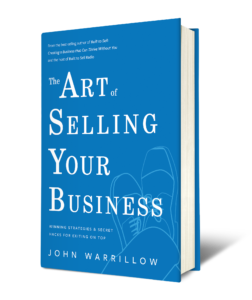3 Steps for Achieving Pricing Power

The simple fact is that most of us want to control our own fate. This fact is especially true for entrepreneurs and business owners. However, the truth of the matter is that for most business owners, their fate isn’t completely in their own hands. For example, a variety of forces can prevent businesses from establishing their own prices.
Knowing whether or not your company has pricing power is essential and can influence a range of decisions that you may make. Let’s take a closer look at what steps you can take to control your own pricing.
What is Pricing Power?
This economic term describes the effect of a change in a product price on the demanded quantity of said product. Your company’s pricing power is linked to the demand for your products or services. If you have a high level of pricing power, you can raise your prices over time and maintain your customers.
Who Has the Greatest Pricing Power?
It is no great secret that the Amazons, Apples, Wal-Marts and auto manufacturers of the world exercise a tremendous amount of power. Part of this considerable, and seemingly ever growing, power resides in the fact that the size of these companies now rivals and even surpasses many nation states. This grand level of power is unique in human history in many ways. Along with it comes the ability to exercise an almost god-like authority over suppliers.
Today, these ultra-powerful companies commonly dictate to vendors what prices they are willing to pay, and the quasi-monopolistic nature of these companies often leaves vendors with no choice to comply. In short, these 900-pound gorillas are telling companies both large and small exactly how much they will pay for a given number of bananas.
Step 1 – Providing a Branded Product or Service
If you discover that your company doesn’t have pricing power, there are steps you can take. One step is to produce a branded product or service. In this way, you are able to offer something of greater value than your competitors. Through having a branded product or service, it is possible to create a higher perceived value in the minds of not just the Amazons of the world, but in the minds of consumers as well.
Step 2 – Innovating
Another path towards achieving pricing power is through innovation. A great example of leading the way in innovation is Apple. While few companies have Apple’s almost ethereal resources, that is not to say that you cannot find ways to innovate within your own sphere or industry. Small innovations can often have an outsized impact and help a business stand out from a crowded playing field. Innovation that leads to patent production is an excellent way to gain a degree of pricing power.
Step 3 – Offering Exceptional Service
A third option for achieving a degree of pricing power is to provide what could be called “mind-blowing” service. By providing service that is truly a cut above what the competitors can match, your company is positioned to achieve pricing power. Providing your customers with something they simply can’t get elsewhere is a key way to setting a price that is more in line with what you desire.
There are many marketplace variables that your business can’t control. The trick is to evaluate your business, your business’s potential and the concrete and practical steps you can take starting today to achieve pricing power.
Copyright: Business Brokerage Press, Inc.
The post 3 Steps for Achieving Pricing Power appeared first on Deal Studio – Automate, accelerate and elevate your deal making.



















